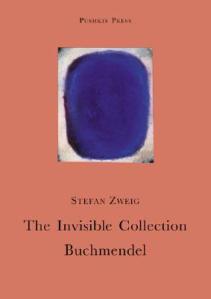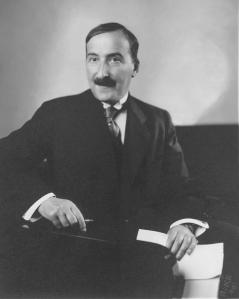As usual with our Club reading weeks, I thought I would take a look back at some previous read from our current year of 1929; it’s really a bumper year, and when I started compiling a list of books I realised I had read quite a few from 1929. I shan’t cover them all, but here are a few favourites!
“Grand Hotel” by Vicki Baum
I actually reviewed this wonderful book for Shiny New Books back in 2016, and absolutely loved it! It was a runaway hit at the time, and made into a successful film starring Greta Garbo. The book pulls together a number of stories, all set in and around the titular hotel, and Baum’s writing and control of her material is stunning. You can read my full review here, and I rather wish I’d had the chance to revisit this one.
“Eve in Egypt” by Stella Tennyson Jesse
“Eve…” was one of Michael Walmer’s rediscoveries, and I covered this is 2018 when he reissued it. Stella was the sister of the more well-known F. Tennyson Jesse (author of “A Pin to See the Peepshow”) and this lovely book is a cross between a frothy 1920s romance and a travelogue, and was a real treat to read. More about it here!
“Speedy Death” by Gladys Mitchell
I got my fingers burned with this one… I had lined myself up to start the week re-reading “Speedy Death” by the great Gladys Mitchell, her first Mrs. Bradley title. Then something niggled in the back of my head, I checked the Ramblings, and found out that I had already covered this quite some time ago… (2014 to be precise!) So that plan went out of the window! Looking back, I did love this to bits, though – a remarkable debut for author and character, and you can see what I thought of it here.
“Clash” by Ellen Wilkinson
“Clash” was a random find in a charity shop in Leicester, and turned out to be a real stunner! Wilkinson was a left-winger from a working-class background, a Labour politician who joined in the Jarrow March when she could. “Clash” tells the story of a woman trade union organiser and the choices she has to make. It was an unforgettable read, and another title I would happily have revisited for this week! More here!
“Hudson River Bracketed” by Edith Wharton
Another Virago book, though this time from across the pond. Telling the story of a young American coming of age and dealing with all that life can throw at him, it’s a beautifully written book. It also deals with class and the struggle to make a living, so I suppose there *is* a bit of a link with “Clash”. There is a follow up to this that I have a copy of, and one day I will get to it… Meanwhile, you can read my full review here.
“Buchmendel” by Stefan Zweig
Back in 2014 there was a bit of a kerfuffle about Stefan Zweig, with some questioning his status and claiming he only wrote about trivialities. Well, I challenge anyone to read “Buchmendel”, a short and poignant tale which captures the horrors of anti-semitism, and not be convinced of his greatness. Zweig was a wonderful and powerful author, and you can see what I thought about the furore here.
*****
Well, I shall stop here. These are only a few of the many 1929 books I’ve previously read, some pre-blog (e.g. “David Golder” by Irene Nemirovsky) and others on the blog (“The Poisoned Chocolates Case” by Anthony Berkeley). It certainly must count as one of the best years for books we’ve chosen (if not *the* best!) – what books have been your favourites from 1929???? 🤔😊












